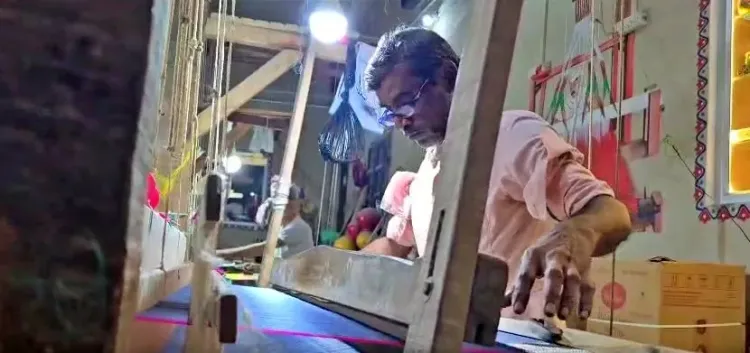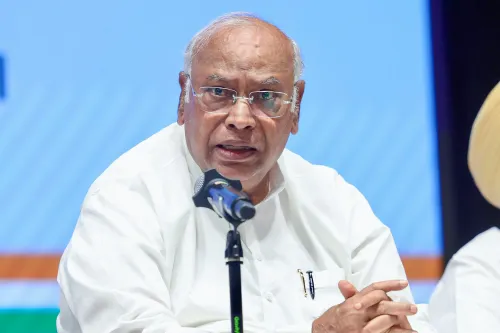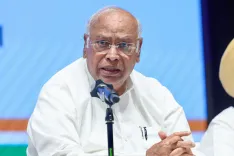How Are US Tariffs Affecting Banarasi Saree Exports?

Synopsis
Key Takeaways
- US tariffs are significantly impacting the Banarasi saree industry.
- Annual losses could reach Rs 300 crore if the situation continues.
- Calls for GST exemptions are being made to support the sector.
- Artisans’ livelihoods are at serious risk due to order cancellations.
- Immediate government intervention is crucial to prevent further decline.
Varanasi, August 30 (NationPress) The renowned Banarasi saree and silk sector is currently grappling with a significant downturn due to the tariffs that have been implemented by the United States. As a result of these tariffs, numerous substantial orders from the US have been cancelled, prompting foreign traders to return shipments, as reported by local traders.
The Varanasi Textile Industry Association warns that if this trend continues, the city may incur annual losses amounting to Rs 300 crore. This situation jeopardizes the livelihoods of countless artisans, pushing the industry closer to a state of widespread unemployment.
Rajan Bahl, vice president of the Banarasi Textile Industry Association, expressed, “The export of Banarasi sarees is projected to fall by 15 to 20 percent due to these tariffs. The handloom sector will bear the brunt of this impact. While the immediate losses may seem minimal, the long-term repercussions will be dire. Each year, exports valued between Rs 200 to Rs 300 crore were directed to the US, which is now under severe threat. Orders are being cancelled, and no new ones are forthcoming. This is not merely a small setback; it is a catastrophic blow to Banaras and its textile industry.”
Bahl further noted that the number of handlooms is already dwindling, and these tariffs will only hasten that decline. He appealed for prompt government action to rescue the industry.
Local saree merchant Sarvesh Kumar Srivastava stated, “These tariffs have had a devastating effect on our operations. Recently, goods worth Rs 10 lakh were returned. The livelihoods of our weavers are at stake, as finished products are on hold and payments remain pending. I employ 20 workers, and holding Rs 20 lakh worth of inventory has resulted in substantial losses.”
He elaborated that traders, who were already facing economic difficulties, are now under intensified pressure due to the tariffs.
Srivastava has called for the government to exempt the handloom and handicraft sectors from GST.
“Eliminating the 5 percent GST on handloom and handicrafts would alleviate the burden on the industry. It would enhance demand in the domestic market and draw the middle class back to Banarasi sarees,” he stated.
He concluded by saying, “I am convinced that a GST exemption could spark a revival in the industry, benefitting both weavers and traders. The crisis linked to tariffs has not only inflicted economic damage but also threatened the livelihoods of thousands of artisans and their families. Immediate government intervention is crucial. Without swift action, this industry risks plunging into a deeper crisis.”









